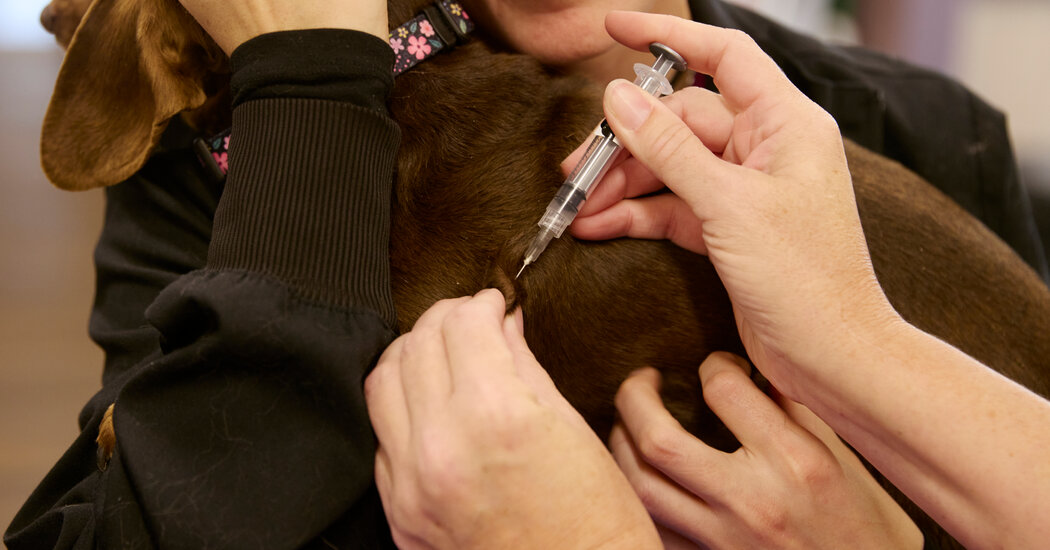In the four years since she opened her own veterinary practice, Dr. Kelly McGuire has seen her fair share of heartbreaking cases.
There was the dog whose kidneys shut down after it contracted leptospirosis, a bacterial disease often carried by rodents. Several of her canine patients had come down with such severe cases of parvovirus that they died after “sloughing their guts to the point of dehydration and malnutrition,” said Dr. McGuire, who owns Wildflower Veterinary Hospital in Brighton, Colo. And, after she was unable to rule out rabies, she had been forced to euthanize a 20-week-old puppy that was having seizures.
The deaths were wrenching, especially because they were preventable: Those pets would likely have survived had they received all their recommended vaccines.
For most of her career, vaccination was a routine, unremarkable part of Dr. McGuire’s work as a small animal veterinarian. But after the Covid-19 pandemic hit, she found herself having long, sometimes adversarial discussions with pet owners about the safety and necessity of vaccines. Clients accused her of pushing the vaccines to line her own pockets. And, increasingly, pet owners insisted on spacing out shots or refused vaccines altogether, including for deadly and incurable viruses like rabies.
“I actually had someone scream and yell at us and storm out because we required rabies vaccines for her cats,” Dr. McGuire said, adding that the owner had accused her of trying to “kill her cats with vaccines.”
The post Vaccine Skepticism Comes for Pet Owners, Too appeared first on New York Times.




